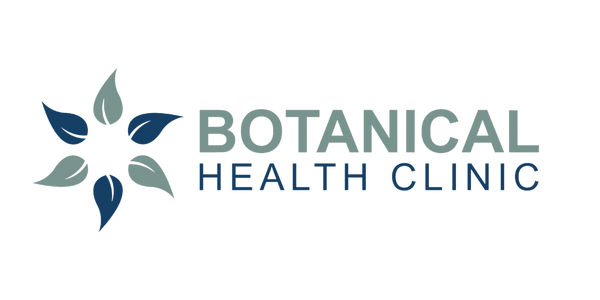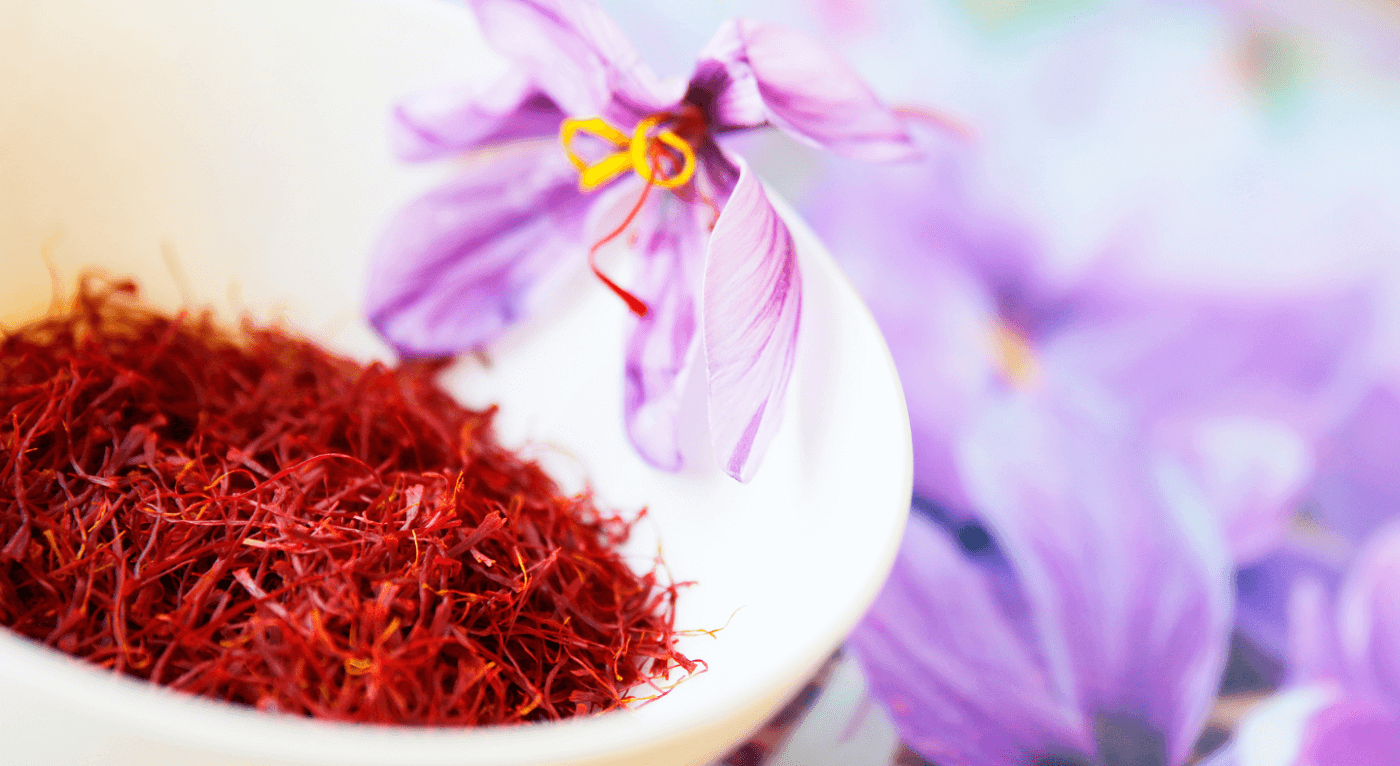Saffron - Crocus sativus for ADHD
Have you heard about the benefit of Saffron for ADHD? Saffron is a culinary spice that has shown to be effective in supporting ADHD symptoms, and combatting depression, and is a known hero in fighting off inflammation and oxidative stress. Saffron has powerful antioxidant, nootropic, and anti-inflammatory properties. But is it always safe?
Saffron is one the world’s most expensive and precious spices. It takes 140 crocus flowers to produce 1 gram of saffron threads. |
Saffron is a perennial, stemless herb belonging to the Iridaceae family. As a spice, Saffron is considered a GRAS status (generally recognized as safe) herb that has been used as a traditional culinary spice, coloring agent, and medicinal herb for at least 3000 years. It is common in countries such as India, Greece, France, Spain, Italy, and also Iran, where most of the world's saffron is cultivated.
Saffron is a culinary spice that comes from the stigma of the Crocus sativus L. flowers. Various compounds such as carotenoids and flavonoids, are the essential components found in the saffron stigma. Like most plants in herbalism, saffron contains a variety of beneficial constituents that support our body’s wellness.
However, the main constituents of saffron include crocins, picrocrocin, and safranal. These primary carotenoids give saffron nervine, neuroprotective, and nootropic effects. Saffron has antioxidant activity and can modulate inflammation and protect against oxidative damage.
5 Ways Saffron Supports ADHD
- Saffron has been shown to be as effective as ADHD medication for some people
Methylphenidate is a commonly prescribed ADHD medication known as a stimulant. Although not a lot of research has been conducted on the subject. An interior study has shown Saffron to be a safe and positive alternative for those patients who seek natural treatments for addressing ADHD, and for those patients who either experience side effects or do not respond to methylphenidate drugs.
- Saffron may be effective in reducing depression symptoms
Depression is a common comorbidity of ADHD (Attention Deficit Hyperactivity Disorder) in both adults and children. Most studies indicate prevalence rates of 9 to 38% for depressive disorders in people with ADHD. The good news is Saffron has been shown to be effective in reducing both depression and ADHD symptoms. Based on up-to-date meta-analysis, saffron is statistically shown to improve negative mood, anxiety, and stress when compared with placebo.
- Saffron supports memory recall and cognitive function
Saffron (Crocus sativus) has been identified as a memory-enhancing agent
Poor working memory is a common complainant in ADHD. Saffron is rich in flavonoids A flavonol-rich diet is linked with a relatively low occurrence of degenerative diseases and various forms of cancer. Saffron may have antioxidant and anti-amyloidogenic activity with a positive effect on cognitive function
- Saffron contains B Vitamins.
Saffron contains two vitamins essential to the human body: Vitamin B2 (Riboflavin) and Vitamin B1 (Thiamine). The riboflavin content of saffron ranges from 56 to 138 μg/g, which is the highest amount found in foods. Riboflavin is important to turn other vitamins (K, B6, & Folate) into their active forms. Vitamin B1 is an important nutrient in producing stomach acid and in manufacturing and balancing our ADHD neurotransmitters and other hormones.
- Saffron has shown positive support for other common comorbidities of ADHD
Saffron has been used in traditional medicine for its hypolipidemic, anti-cancer, antioxidant, anti-inflammatory, and antidepressant properties. It can support sexual dysfunction caused by medications and may even lower blood pressure.As saffron has pharmacological effects on the central nervous system, it has also been tested in clinical trials of depression, anxiety, Alzheimer’s, and other brain disorders.
Saffron Recipe + Recommendations
When I suggest Saffron to my own clients, I suggest starting with 1-2 threads daily, a couple times a week. I suggest adding the Saffron spice to soups, bone broth, rice, or hot tea. Extracting saffron in water makes it more effective and bioavailable. It also helps extract and transport the water soluble vitamins in the body. I recommend taking a break every few weeks from saffron. There is no need to overdo saffron in recipes, the flavor does not increase.
Saffron pairs well with many spices such as cinnamon, almond, clove, cumin, coriander, and nutmeg. It is a wonderful spice to compliment other foods like chicken, couscous, curries, rice, lamb and shellfish.
I love this aromatic Saffron Rice Recipe
Safety
Although Saffron for ADHD has GRAS status in small quantities as a culinary spice and is generally well tolerated, it should not be used long-term or in high doses. You should take a break from using Saffron every 4-6 weeks. Taking doses of 5 grams or more of saffron can cause severe side effects and acute poisoning. Mega doses of 12-20 grams can cause death. Saffron is a perfect example of why it is important to work with a trained professional to know what you are consuming, even if it’s a well-known food or spice.
Possible side effects of Saffron spice or supplements if taken in large doses:
- Extreme Sweating
- Nausea
- Vomiting
- GI Distress
- Headaches
- Drowsiness
- Anxiety
Saffron Drug Interactions and Cautions
Avoid consuming Saffron in any form at least 2 weeks before and after any surgery. It may interact with anesthesia and cause CNS depression. Additional interaction warnings include CNS depressant drugs, caffeine, and antidiabetic drugs.
Like all herbs and supplements, it is important to work with a trained practitioner before starting a therapeutic dose of saffron. The safety of consuming Saffron during pregnancy and lactation is unknown.
References
- Aggarwal BB, Yost D. Healing Spices : How to Use 50 Everyday and Exotic Spices to Boost Health and Beat Disease. Sterling Pub. Co; 2011.
- Tóth B, Hegyi P, Lantos T, et al. The Efficacy of Saffron in the Treatment of Mild to Moderate Depression: A Meta-analysis. Planta Med. 2019;85(1):24-31. doi:10.1055/a-0660-9565
- Bian Y, Zhao C, Lee SMY. Neuroprotective Potency of Saffron Against Neuropsychiatric Diseases, Neurodegenerative Diseases, and Other Brain Disorders: From Bench to Bedside. Frontiers in Pharmacology. 2020;11. Accessed August 31, 2022. https://www.frontiersin.org/articles/10.3389/fphar.2020.579052
- Turgay A, Ansari R. Major Depression with ADHD: In Children and Adolescents. Psychiatry (Edgmont). 2006 Apr;3(4):20-32. PMID: 21103168; PMCID: PMC2990565.
- Ross SM. Saffron (Crocus sativus L.): A Phytomedicine as Effective as Methylphenidate in Treating ADHD in Children. Holist Nurs Pract. 2020;34(1):65-67. doi:10.1097/HNP.0000000000000365
- Morton WA, Stockton GG. Methylphenidate Abuse and Psychiatric Side Effects. Prim Care Companion J Clin Psychiatry. 2000 Oct;2(5):159-164. doi: 10.4088/pcc.v02n0502. PMID: 15014637; PMCID: PMC181133.
- Bostan HB, Mehri S, Hosseinzadeh H. Toxicology effects of saffron and its constituents: a review. Iran J Basic Med Sci. 2017 Feb;20(2):110-121. doi: 10.22038/ijbms.2017.8230. PMID: 28293386; PMCID: PMC5339650.
- Boskabady, M. H., Farkhondeh, T. (2016). Antiinflammatory, Antioxidant, and Immunomodulatory Effects of Crocus sativus L. and its Main Constituents. Phytother. Res. 30 (7), 1072–1094. doi: 10.1002/ptr.5622
- Adalier N, Parker H. Vitamin E, Turmeric and Saffron in Treatment of Alzheimer's Disease. Antioxidants (Basel). 2016 Oct 25;5(4):40. doi: 10.3390/antiox5040040. PMID: 27792130; PMCID: PMC5187538.
- Saffron Professional Monograph. Natural Medicines Database. Accessed August 22, 2022. https://naturalmedicines.therapeuticresearch.com/
- Moshiri M, Vahabzadeh M, Hosseinzadeh H. Clinical Applications of Saffron (Crocus sativus) and its Constituents: A Review. Drug Res (Stuttg). 2015;65(6):287-295. doi:10.1055/s-0034-1375681
- Sarris J. Herbal medicines in the treatment of psychiatric disorders: 10-year updated review. Phytother Res. 2018;32(7):1147-1162. doi:10.1002/ptr.6055
- Saffron | Monographs | The Herbarium. Accessed August 30, 2022. https://herbarium.theherbalacademy.com/monographs/
- Saffron Rice | Yellow Rice (Easy Indian Recipe) » Dassana’s Veg Recipes. Accessed August 31, 2022. https://www.vegrecipesofindia.com/saffron-rice-or-kesar-rice/


